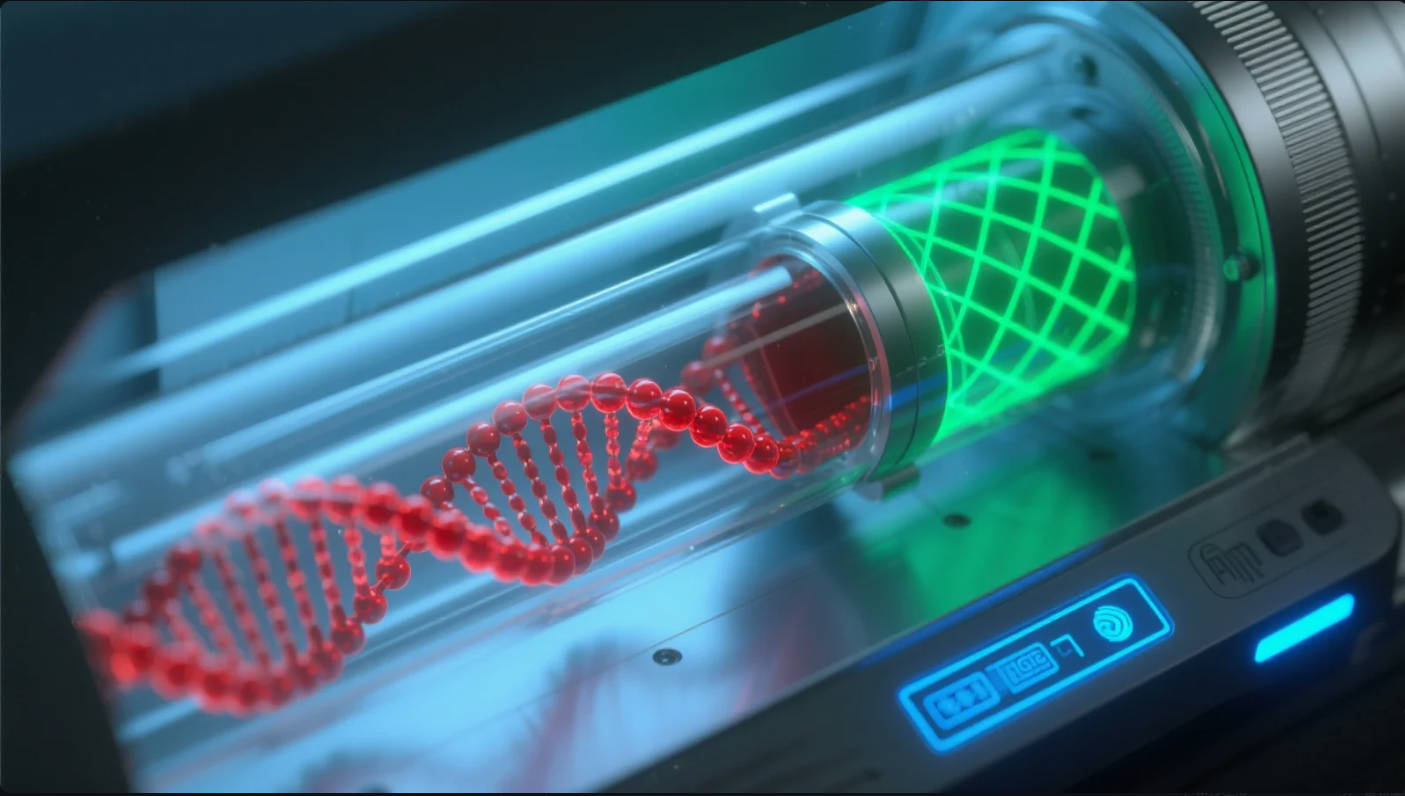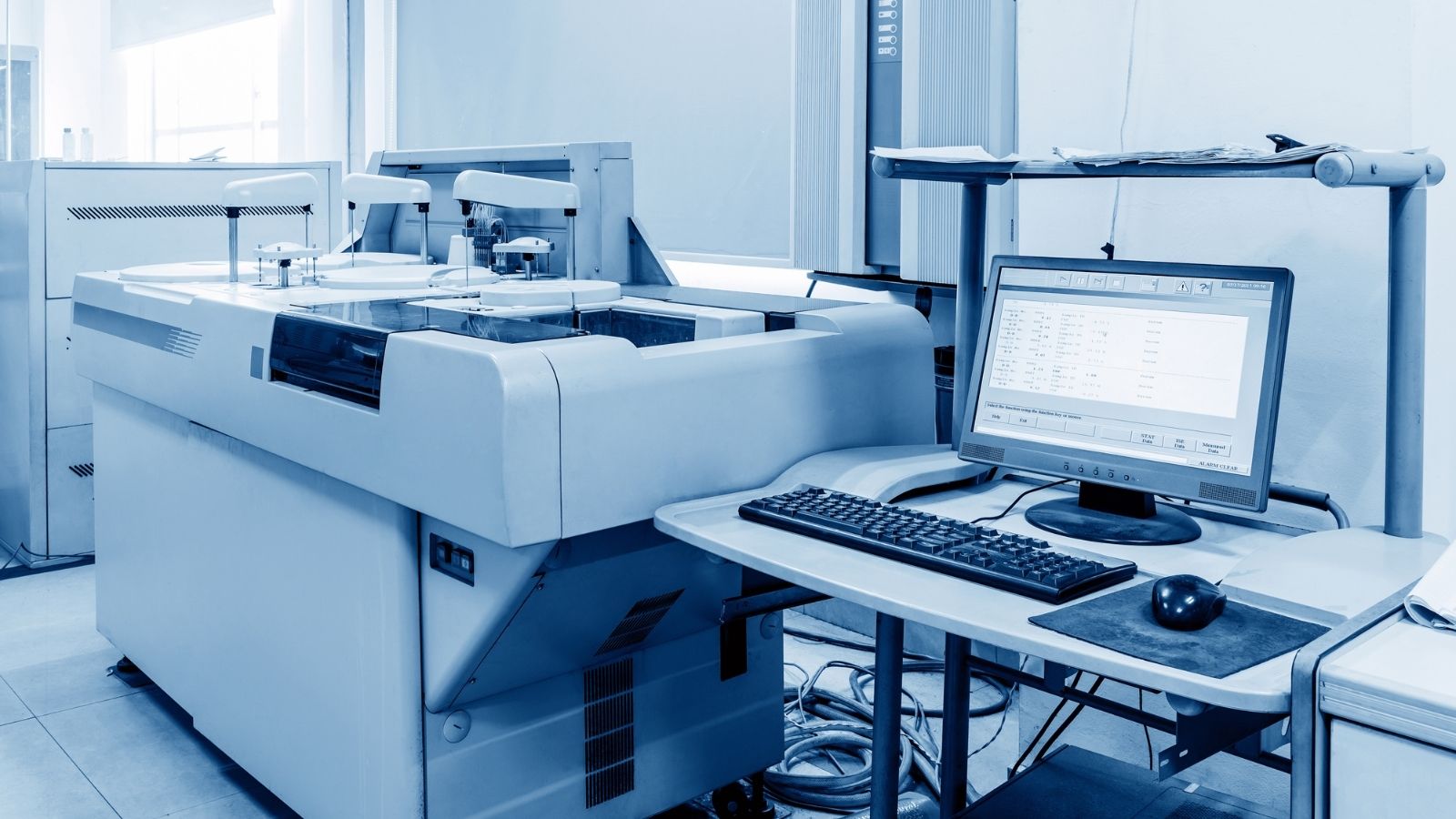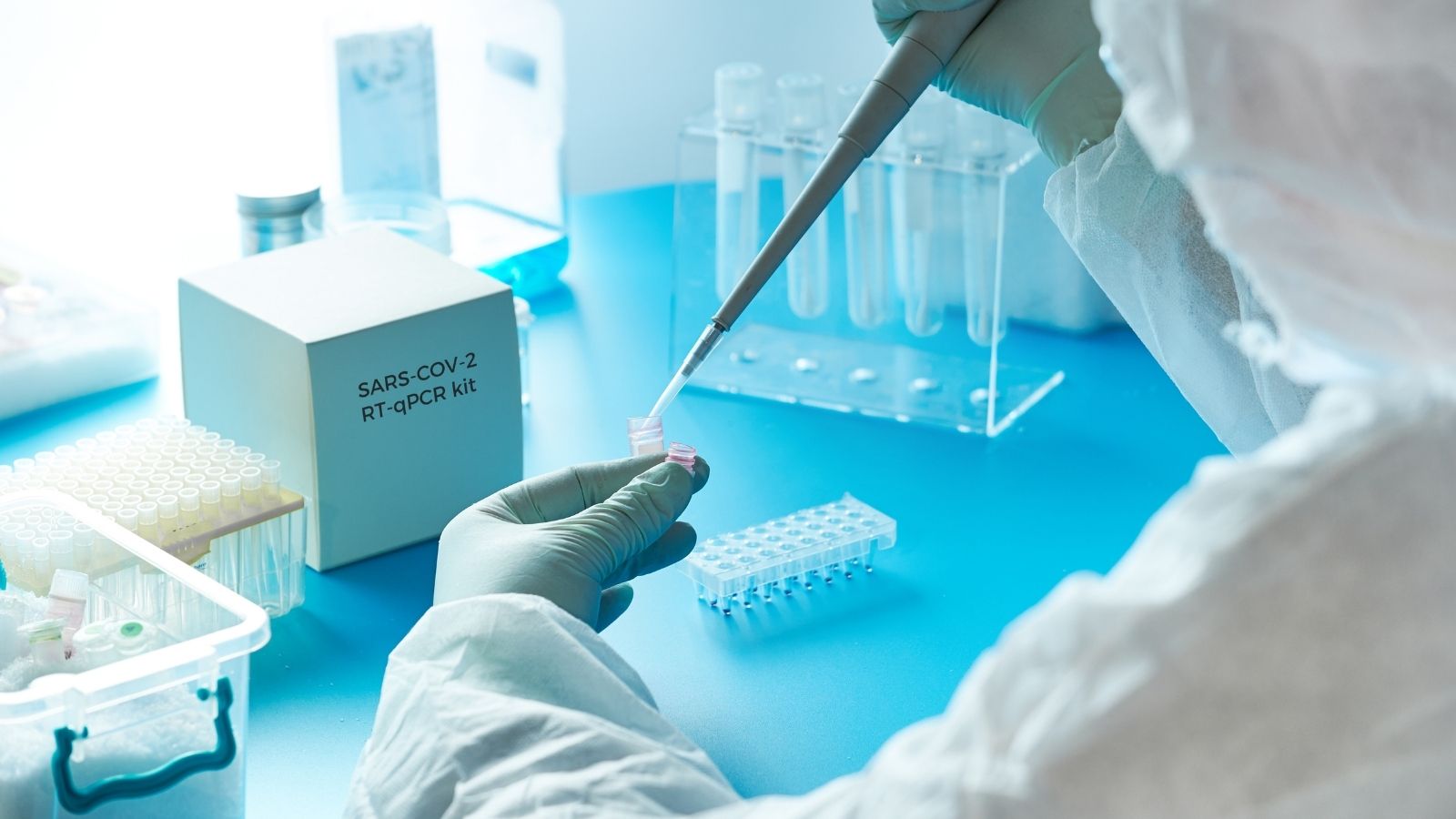
Molecular diagnostics analyzers represent the cutting edge of modern medical diagnostic technology, enabling precise detection and analysis of genetic material for a wide range of applications. These sophisticated instruments have revolutionized disease detection, treatment monitoring, and personalized medicine by providing rapid, accurate, and sensitive diagnostic information at the molecular level.
Molecular diagnostics is a collection of techniques used to analyze biological markers in the genome and proteome—the individual's genetic code and how their cells express their genes as proteins—to guide medical decision making. Unlike traditional diagnostic methods that might rely on biochemical reactions or cell morphology, molecular diagnostics delves deeper into the fundamental building blocks of life.
At its core, molecular diagnostics focuses on the detection and measurement of specific DNA sequences, RNA expression patterns, or protein biomarkers that indicate normal or abnormal conditions. This approach enables healthcare providers to detect diseases earlier, select more targeted treatments, monitor disease progression, and predict health outcomes with greater precision than ever before.
Molecular diagnostics represents a paradigm shift from reactive to predictive healthcare, providing critical insights at the most fundamental biological level—the genome.

Molecular diagnostic analyzers are sophisticated instruments that automate complex molecular biology techniques to detect genetic material from pathogens or abnormalities in a patient's own genetic makeup. These analyzers typically perform several critical steps:
The first step involves extracting and purifying nucleic acids (DNA or RNA) from patient samples such as blood, tissue, or other bodily fluids. This process removes inhibitors and concentrates the target genetic material to ensure accurate analysis.
Most molecular diagnostic techniques require amplification of target nucleic acid sequences to detectable levels. Polymerase Chain Reaction (PCR) and its variants are the most common amplification methods, creating millions of copies of the target sequence within hours.
Advanced detection systems identify the amplified genetic material using various methods including fluorescence, chemiluminescence, or electrical signals. Sophisticated software then interprets these signals to provide diagnostic information about the presence, absence, or quantity of specific genetic sequences.
The final step involves converting the raw data into clinically relevant information that healthcare providers can use for diagnosis, treatment selection, or disease monitoring.

Modern molecular diagnostic analyzers incorporate several key technologies that enable efficient, accurate, and high-throughput analysis:
Polymerase Chain Reaction (PCR) remains the foundation of molecular diagnostics, with real-time PCR (qPCR) allowing simultaneous amplification and detection of target sequences. This technology enables quantitative measurements of genetic material, critical for applications such as viral load monitoring.
NGS technologies have revolutionized molecular diagnostics by enabling parallel sequencing of millions of DNA fragments. These high-throughput platforms allow comprehensive genetic analysis, from targeted gene panels to whole-genome sequencing, providing unprecedented insights into genetic diseases, cancer genomics, and microbial identification.
DNA microarrays allow simultaneous analysis of thousands of genes, making them valuable for gene expression profiling, genotyping, and chromosomal abnormality detection. This technology is particularly useful for complex genetic diseases and pharmacogenomic applications.
Digital PCR partitions samples into thousands of individual reactions, enabling absolute quantification of nucleic acids with extraordinary precision. This technology excels at detecting rare genetic variants and subtle differences in gene expression, crucial for applications like liquid biopsy and minimal residual disease monitoring.
Molecular diagnostic analyzers have transformed numerous clinical fields by providing precise genetic information for diagnosis, prognosis, and treatment guidance:
Molecular diagnostics enables rapid and accurate identification of pathogens, including bacteria, viruses, fungi, and parasites. These tests offer superior sensitivity and specificity compared to traditional culture methods, significantly reducing time to diagnosis and enabling earlier therapeutic intervention. Applications include detection of respiratory pathogens, sexually transmitted infections, healthcare-associated infections, and emerging infectious threats.
Cancer diagnostics has been revolutionized by molecular testing, which can identify specific genetic mutations, chromosomal rearrangements, and gene expression patterns. These insights guide treatment selection, particularly for targeted therapies and immunotherapies. Molecular diagnostics also facilitates cancer screening, early detection, tumor classification, prognosis assessment, and monitoring treatment response or disease recurrence.
Molecular analyzers enable comprehensive genetic testing for inherited disorders, from single-gene conditions to complex polygenic diseases. Applications include carrier screening, prenatal diagnosis, newborn screening, and diagnostic testing for suspected genetic disorders.
Genetic variations can significantly impact drug metabolism, efficacy, and toxicity. Molecular diagnostics identifies these variations, enabling personalized medication selection and dosing to maximize therapeutic benefit while minimizing adverse effects.
The adoption of molecular diagnostic analyzers offers numerous advantages over conventional diagnostic methods:
Molecular techniques can detect pathogens or genetic variants with extraordinary sensitivity, often identifying disease-causing agents that would be missed by traditional methods. This capability is particularly valuable for early disease detection when pathogen loads or biomarker levels may be extremely low.
Many molecular diagnostic platforms deliver results within hours rather than days required for traditional culture-based methods. This speed enables faster clinical decision-making, prompt initiation of appropriate therapy, and improved patient outcomes.
Modern analyzers automate complex molecular procedures, reducing manual labor, minimizing human error, and standardizing testing processes. These features ensure consistent, reliable results across different operators and laboratory settings.
Advanced molecular platforms can simultaneously test for multiple targets in a single sample, saving time, reducing sample volume requirements, and providing comprehensive diagnostic information efficiently.
Unlike many traditional tests that provide only qualitative (positive/negative) results, molecular diagnostics often delivers quantitative measurements. This capability is invaluable for monitoring disease progression, treatment response, and residual disease detection.
The molecular diagnostics analyzer market continues to evolve rapidly, driven by technological innovations and expanding clinical applications:
The development of smaller, faster, and more user-friendly molecular platforms is bringing sophisticated genetic testing closer to patients. These point-of-care systems enable rapid diagnosis in clinical settings without specialized laboratory infrastructure, facilitating prompt treatment decisions and improved patient management.
Non-invasive testing of circulating biomarkers in blood or other body fluids is gaining traction for cancer detection, monitoring, and characterization. Advanced molecular analyzers can detect circulating tumor DNA, cells, and other cancer-related markers, potentially reducing the need for invasive tissue biopsies.
The combination of molecular diagnostics with AI and machine learning is enhancing test interpretation, pattern recognition, and clinical decision support. These technologies help clinicians navigate increasingly complex genomic data and translate molecular findings into actionable clinical insights.
Molecular diagnostics continues to find new applications beyond traditional disease diagnosis, including microbiome analysis, non-invasive prenatal testing, aging assessment, wellness optimization, and environmental monitoring.
Autobio has established itself as a leading provider of innovative molecular diagnostic solutions, combining cutting-edge technology with practical clinical utility. Our comprehensive portfolio of molecular diagnostic analyzers addresses diverse healthcare needs while maintaining the highest standards of accuracy, reliability, and user-friendliness.
Our molecular platforms feature state-of-the-art automation, intuitive interfaces, and flexible throughput options to accommodate laboratories of all sizes. From rapid infectious disease detection to comprehensive genetic analysis, Autobio's solutions deliver the precision and efficiency required in today's demanding healthcare environment.
At the forefront of our offerings are the AutoMolec 1600 and AutoMolec 3000, two fully integrated and automated molecular diagnostics analyzers designed to streamline nucleic acid testing.
Autobio's commitment to innovation in molecular diagnostics reflects our broader mission of advancing healthcare through technology that makes a meaningful difference in patients' lives.

When implementing molecular diagnostic analyzers in clinical laboratories or healthcare settings, several factors should be considered:
Proper laboratory design, including dedicated pre- and post-amplification areas, appropriate ventilation, and contamination control measures, is essential for reliable molecular testing. Advanced analyzers may also have specific environmental requirements for optimal performance.
While modern systems automate many technical steps, knowledgeable personnel remain crucial for test selection, quality control, troubleshooting, and result interpretation. Comprehensive training programs ensure staff competency and testing quality.
Robust quality assurance processes, including regular calibration, internal and external quality controls, and participation in proficiency testing programs, are vital to maintain testing accuracy and reliability.
Molecular diagnostic laboratories must navigate complex regulatory requirements, including test validation, documentation, and adherence to regional or national laboratory standards.
Molecular diagnostic analyzers represent a transformative technology in modern healthcare, providing unprecedented insights into the genetic underpinnings of health and disease. By detecting specific DNA, RNA, and protein markers with remarkable sensitivity and specificity, these sophisticated instruments enable earlier diagnosis, more targeted treatments, and better monitoring of treatment effectiveness.
As technology continues to advance, we can expect molecular diagnostics to become even more accessible, comprehensive, and integrated into routine clinical care. The evolution toward more compact, automated, and user-friendly platforms will further expand the reach of molecular testing beyond specialized reference laboratories to point-of-care settings.
For healthcare institutions seeking to enhance their diagnostic capabilities, molecular analyzers offer a powerful addition to the clinical laboratory arsenal. With companies like Autobio leading innovation in this field, the future of molecular diagnostics promises even greater contributions to personalized medicine, infectious disease control, and overall public health.